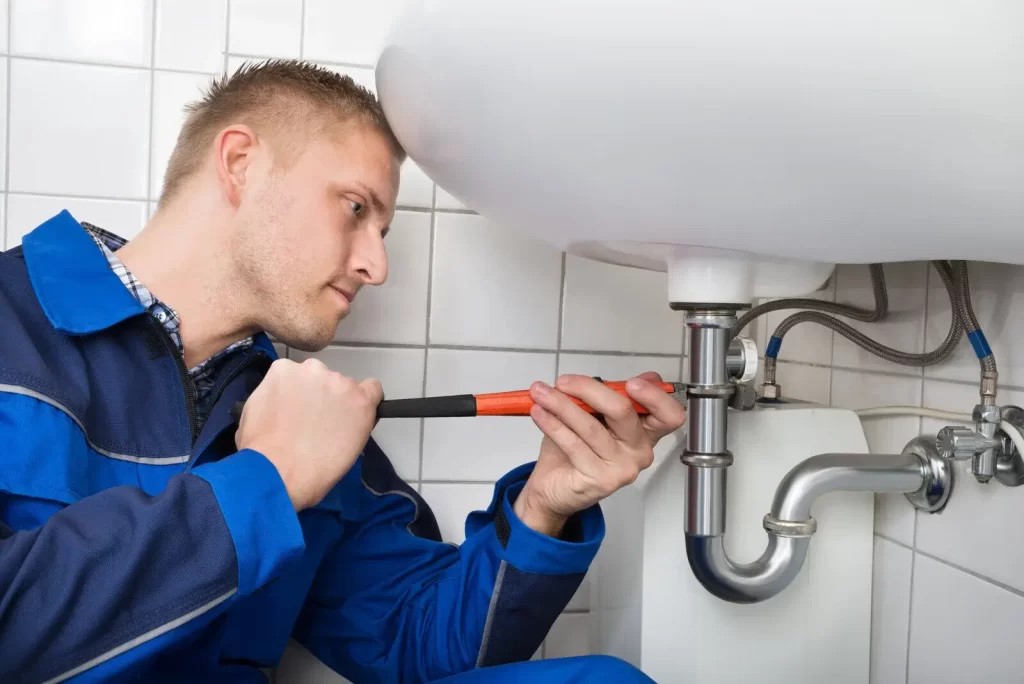What causes a sink leak?
 A sink leak and slow drain are both frustrating and inconvenient. The situation may seem minor, but it can be a sign of more serious plumbing problems. And if left alone, a clog will only get worse. The puddle of water also creates the ideal environment for mold and fungus to grow in the drain. It can also cause odors, soap scum build-up and stains. The reasons why the sink drain is sluggish are as follows:
A sink leak and slow drain are both frustrating and inconvenient. The situation may seem minor, but it can be a sign of more serious plumbing problems. And if left alone, a clog will only get worse. The puddle of water also creates the ideal environment for mold and fungus to grow in the drain. It can also cause odors, soap scum build-up and stains. The reasons why the sink drain is sluggish are as follows:
Clogged drain or pipe
A clog is the most common cause of a slow-draining sink. Soap, grease, food, dirt, and hair can accumulate and cause blockages, while solid objects that accidentally fall down the drain can also do so. Sometimes you can pull the debris out of the drain or use a plunger. However, plumbers have even more ingenious methods for cleaning pipes and hydraulic augers to remove clogs.
Problems with the drain pipe
A clog, sediment build-up or leak in a drain pipe can slow down the sink’s ability to drain water. Drain pipes are different from supply lines. They connect to the main sewer line, so if there is a problem, the waste water may not drain out of the house and may even start stagnating. A drain pipe issue is difficult to find without the help of a plumber.
Vent pipes can be blocked, damaged, or frozen.
Vent pipes are an important hydraulic component that allows fresh air to enter the building, creating a vacuum that eliminates odor-causing gases. However, the air pressure can become unbalanced. This can lead to slow drainage of the sink. Common causes of issues with pipes include freezing in winter and blockages due to leaves in autumn.
Tree Root Intrusion
Sewer lines have moisture and nutrients on which trees thrive. Tree root intrusion is a common issue; once roots enter the sewer line, they can spread throughout the system. Slow draining sinks are only a symptom, but may indicate the need to replace the affected pipe. Only a plumbing technician has the tools and skills to correct the problem.
Can I repair a sink leak?
While many commercial drain cleaners contain chemicals that do more harm than good, there are ways to clean a clogged drain relatively safely. You can try cleaning the sink plug, lifting debris with a wire hook or drain cleaning tool, or using a plunger or drain auger. If these methods don’t work, call a plumber, you might have serious plumbing issues.
If your sink is draining slowly, you should contact Emergency Plumber Northampton. Our plumbers in Northampton are experts at dealing with any cause of slow draining. Call 01604986977 to request service.
We collaborate with: Emergency Plumber 24h, Emergency Plumber Reading, Emergency Electrician Bolton and Emergency Locksmith 24h
FAQs
How much does it cost to fix a leaking sink?
The cost to fix a leaking sink can vary widely based on several factors, including the source of the leak, the type of sink, the location, and whether you hire a professional plumber or do it yourself
How do I know where my sink is leaking?
Finding the cause of a sink leak can be easy if you follow a plan. Check the faucet, water lines, and sink basin for visible drips or water that’s accumulating. Look under the sink to find damp spots on the cabinet floor or around the pipes.
How to stop a dripping sink?
Stopping a dripping sink involves a few straightforward steps. First, turn off the water to the sink to stop more leaks. Next, find where the water drips from, which is usually the faucet. Using the appropriate tools, such as a wrench or a screwdriver, disassemble the faucet and examine its internal components. If you find it difficult to fix it, contact a plumber.
